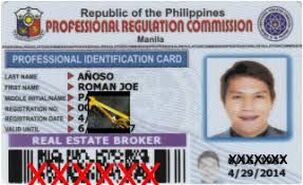How to transfer a property title of a deceased person without undergoing to a court hearing?5/15/2018 what's the role of extrajudicial settlement in the transfer of property title of a deceased personThe most basic form of business operation that has been around ever since the beginning of time is buy-and-sell. Although as simple as many people deem it to be, there are many complications that goes into this process; most especially in cases wherein a certain property must be divided among legal heirs. It makes it even more difficult when the owner of the property passes away even before settling the transfer of ownership. The insufficient understanding of the process that lies behind this case is the reason why a lot of people experience troubles and fall into scams.
But there is an easy way to solve this problem when you do encounter it; you can fix this through an extrajudicial settlement. In this article, you would be educated on it by learning its requirements and the processes that comes along with it. So, the first thing you must know is what is an extrajudicial settlement; it is the process of formally settling a property through a contract that includes the details on the division of the deceased’s estates between the inheritors. The contract indicates the properties that the deceased own which after the contract will then be referred to as an “estate”. And the reason why this process is considered “extrajudicial” because the inheritors of the estates did not undergo trial in court to come up with a definitive decision on the division of the estates but instead chose to divide through a non-trial process. Now that you have understood what an extrajudicial statement is the next step here is to know the requirements for it. One of the most necessary things one must have is knowledge of absolute absence of a will. The will is the official settlement of properties, so without it, the extrajudicial settlement can be done. But in the case, that there is, if there are properties that were not included in the will, the extrajudicial settlement can be done. There are other requirements one must take note of.
That ends the process of extrajudicial settlement, from here inheritors can do as they please.
0 Comments
Leave a Reply. |
Archives
July 2024
Categories
All
|
Hi! Welcome to our website. Having an agent/broker on your real estate search is a gift because with or without them the price of the property is always the same. They give you FREE SERVICE and only pure service. On your part, everything is to gain. Claim your gift now! :)
meet your Real estate Broker Partner:
Roman Joe Anoso, RN, REB
Real estate Broker PRC license number: 19887
HLURB registration number: CAR-B-05/21-029
HLURB registration number: CAR-B-05/21-029
Roman joe Anoso is a multi-awarded real estate broker, consistent Top #1 for 8 years to date, being recognized by the following companies:
Suntrust Properties, Inc.
- Overall Nationwide Top # 1 Real estate broker year 2018:
Vista Residences, Inc.
- Overall Nationwide Top # 1 Real estate broker year 2017:
Goshen Land capital, inc.
- Overall Nationwide Top # 1 Real estate broker year 2011 to 2016:
Suntrust Properties, Inc.
- Overall Nationwide Top # 1 Real estate broker year 2018:
Vista Residences, Inc.
- Overall Nationwide Top # 1 Real estate broker year 2017:
Goshen Land capital, inc.
- Overall Nationwide Top # 1 Real estate broker year 2011 to 2016:
office address: REALS Corporation, Barangay Dontogan, Baguio city, 2600
personal: +63917-5645-863
viber/whatsapp: +63917-5645-863
add him on facebook (CLICK HERE)
office landline: 074-442-2353 (for clearer conversation)
email: [email protected]
skype: romankat2
website: www.realestatebaguio.com
personal: +63917-5645-863
viber/whatsapp: +63917-5645-863
add him on facebook (CLICK HERE)
office landline: 074-442-2353 (for clearer conversation)
email: [email protected]
skype: romankat2
website: www.realestatebaguio.com
official Real Estate Brokerage Website of REALS Corporation
for our affiliate program CLICK HERE
for our affiliate program CLICK HERE


 RSS Feed
RSS Feed




